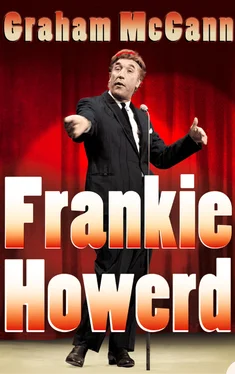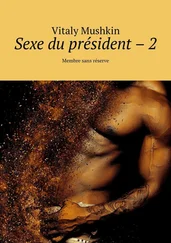Some of them might have caught the odd comic novelty on the wireless before â such as the old Sheffield-born stand-up Stainless Stephen, 3 who had intrigued a small but loyal audience during the late 1920s and early 1930s with his downright peculiar brand of âpunctuated patterâ (e.g. âSomebody once said inverted commas comedians are born not made semi-colonâ) â but never, before now, had any of them encountered the sound of someone so original in the context of a prime-time mainstream show. What people had heard on this particular night had genuinely taken them by surprise.
Howerd could not have sounded less like the regular, rather more established, young stand-up associated with the show, Derek Roy. Later dismissed by an embittered Spike Milligan (who toiled for a spell as one of his many underpaid writers) as âthe worldâs unfunniest comedianâ, 4 Roy was a singer (nicknamed âThe Melody Boyâ) who had metamorphosed into a relatively slick but essentially old-fashioned teller of jokes. He was technically not much better than mediocre, but he was certainly full of cheek: if he doubted his ability to deliver a certain punchline, he would not hesitate to resort to donning a silly wig or a wacky hat in order to amuse the studio audience and thus ensure that the radio waves still registered the requisite laugh. 5
His material revolved around a predictable cluster of comedy clichés: the shrewish wife; the dragon-like mother-in-law; the attractive but vacuous girlfriend; the bumptious boss; the slow-witted neighbour or acquaintance; and the latest celebrity sex symbol. âAnyone here played Jane Russell pontoon?â went a far livelier than usual Derek Roy joke. âItâs the same as ordinary pontoon but you need thirty-eight to bust!â His style was somewhat Americanised â a kind of âBob Hope Liteâ â and possessed all of the personality of a typed and unsigned letter.
With the memory of Royâs last stale routine still fresh in the mind, no listener would have failed to have been struck by Howerdâs astonishing originality. It was like suddenly hearing modern jazz after a lifetime of tolerating trad: innovative, unpredictable and supremely individual.
The BBC had only booked Howerd for a three-week probationary period (paying him a paltry £18 per show), but a delighted Joy Russell-Smith wasted no time, after witnessing that truly remarkable debut appearance, in signing him up to the show as a regular. The residency would last for two-and-a-half extraordinarily memorable years.
Bill Lyon-Shaw, who was still responsible for Howerd on tour, was perfectly happy to share his energies with the BBC:
[ variety Bandbox ] was good for him, good for the tour, and it wasnât like he was going to tire himself out. Frank was a young man, heâd been trained in the Army, and he was quite tough. It didnât take that much out of him to do our show [ For the Fun of It ], because he was only doing his own act â he wasnât doing any of the sketches or anything extra like that. So, twice nightly, it didnât take a lot out of him. And heâd just go off on either the Saturday night or the Sunday morning to London, to wherever the theatre was, and do his radio programme, and then heâd come back to us, wherever we were, on the Monday afternoon. So I donât think combining the two affected him much at all. But, I must say, he did start spending more and more time in the dressing-room preparing for the weekend. He used to sit there for hours on his own, making faces, and going, â Ooooh! Aaaah! Yes! No! Missus! Ooooh! â I mean, he worked very, very hard at it. It wasnât natural. That was acting. Off-stage, Frank was usually a very quiet and introverted person, and his stage presence was foreign, it really was an act in the true sense of the word. 6
Joy Russell-Smith had decided that, from this moment on, Howerd would alternate on a fortnightly basis with Derek Roy as the showâs top comic and co-compère. Inspired by the long-running mock âfeudâ on American radio between Jack Benny and Fred Allen â a good-natured battle of wits that had been amusing both starsâ audiences (and fuelling the imaginations of both sets of writers) since 1936 â the idea was for Howerd and Roy to cultivate a similar kind of sparring relationship. 7 It worked rather well, not only providing each performer with some welcome additional publicity (plenty of name-checks on the air during those weeks when one or the other of them was off it, as well as the odd mention in the letter pages and the gossip columns), but also furnishing them with an invaluable extra âpegâ for new comic material.
The need to keep coming up with fresh material, Howerd soon realised, would prove to be a chronic problem now that he was working in radio. The first few weeks were relatively easy â a combination of tried-and-tested routines, smart prevarications and a sharp rush of adrenalin each Sunday night saw to that â but then, all of a sudden, it felt as if he had run into a brick wall. He had used, and then subtly reused, more than a decadeâs worth â in fact, an entire lifeâs worth â of comic material, and still people wanted, and expected, more.
âIn Music Hall,â he reflected ruefully, âyou could use much the same script for the duration of the tour â it appeared new to each town played. But on radio the total audience heard it all at once, so I needed a fresh script for each broadcast.â 8 Since (unlike the considerably better-off Derek Roy) he could not yet afford to hire a scriptwriter (or pay, as Roy also did, for regular transcriptions of scripts that had already been used by the stars of top radio shows in the States), he got by, for a while, by studying a pile of joke books, cannibalising their contents and then inserting enough stutters, hesitations and digressions to ensure that every single joke could be relied on to go a long, long way.
Ironically, this craftiness eventually served only to make the problem even worse. So warmly received were his early performances that the BBC decided to reward him with two additional solo spots in each one of his shows â thus stretching his limited resources still further and thinner than ever. He responded by begging and borrowing on what seemed like an ever-increasing scale: Max Bygraves soon became used to his friendâs anxious requests for âspareâ material, and never failed to respond with both promptness and generosity; Nosmo King was similarly obliging, even if much of what he offered dated back to shortly before the Great War; mother Edith and sister Betty jotted down dutifully every new joke, anecdote and one-liner they spotted in the papers or heard at the theatres; and Frankie himself spent long afternoons on his own at the movies, trying his best in the darkness to transcribe some of the best of the latest Hollywood bons mots .
The audience remained blissfully ignorant of his routine struggles behind the scenes. After all, they did not tune in each fortnight to listen to his jokes; they tuned in to listen to him.
The content might well have sounded commonplace, but it was the form that fascinated. Howerdâs wonderfully characterful routines, delivered with such an unusual and lively manner, were drawing in as many as twelve million listeners each show, and the critics had started hailing him as âthe most unusual of all radio discoveriesâ. 9 It was clear that something special was happening. âI was considered to be very much the alternative comedian at that time,â he would recall. âI was different to everybody else: my attitude was different.â 10 In an era when radio was still Britainâs pre-eminent mass medium, he was well on the way to establishing himself as one of its most popular, distinctive and talked-about young stars.
Читать дальше












